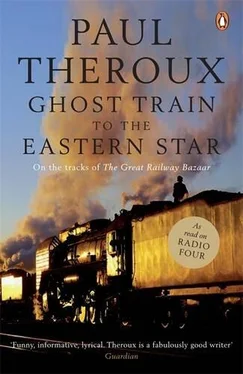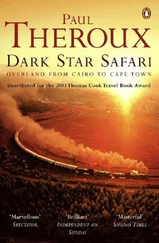America's prisoners from across the world were shipped off to, among other places, jails in Romania, where humane conventions did not have to be observed and torture was allowed. But the incarceration and interrogation had been instigated by the United States and paid for by American taxpayers. The program was so secret that it was only when, after two or more years, a prisoner was released and interviewed by a newspaper (as several had) that the despicable program was revealed. Poland was also mentioned as a country of interrogation under torture.
Nikolai said he had things to do but would see me on the train. I had the feeling I'd made him uncomfortable with my questions and that he simply wanted to get away.
The largest, weirdest building in Europe — perhaps the world — the Palace of Congresses, is in Bucharest. I had thought it was within walking distance. I ended up taking a taxi — or perhaps not a taxi but a volunteer driver eager to make a little money.
The building was an impressively ugly and gigantic example of megalomaniacal architecture.
"Is amazing, eh?"
"Amazing."
"You have zis in your country?"
"Nothing like it"
On the way, we had passed many casinos. They were the only splash of color in the brown city, along with smoky bars and massage parlors. It was a city of sullen, desperate vice. The driver gave me a copy of What's On in Bucharest. This guide offered tips on how to find sex. Avoid pimps, it said; you will probably get robbed. "Better you ring the number of the escort agency, almost all of which can deliver ladies to your hotel room within half hour."
An entrepreneur, identified as "Arab businessman, Zyon Ayni," was opening a new nightclub in Bucharest, offering lap dances, fifty strippers, and "dances in private rooms."
"'I sell fantasies. This is my business,' synthesizes Ayni. If you want to go on a cruise with the company's yacht, accompanied by a very beautiful woman, the company also offers this service. Ayni's company owns 25 yachts but also planes, for those who are seasick."
One club had opened, and "unique at this moment in Romania, on Tuesday night, the international porno star, Quanita Cortez."
As for drinks: "A selection of drinks carefully picked on the taste of the most pretentious clients." At the Harbour Restaurant "you can have reinless fun with all your friends." And the Culmea Veche Restaurant advertised itself as an "above average Romanian restaurant." Don Taco's boast was "The only Mexican restaurant in Bucharest."
They were empty. A few businessmen in Bucharest had money, and what foreigners there were making deals knew that Romanians were ripe for exploitation. The sale of orphans and newborn babies is one of the brisker businesses, followed by the traffic in women for the sex trade. When I rolled my eyes at the dereliction here, Romanians said, "It used to be worse" — they meant the nightmare under Ceausescu. It has been seventeen years since he stood to give a speech in the main square and people began to chant, "Rat! Rat! Rat!" — and he looked cornered and crept away before being captured and shot like a rat.
The Third World stink and disorder were strong in Bucharest, its suburbs looked blighted, its farms muddy and primitive. Romania was another country people were leaving, all of them headed west. The look of Bucharest was desperate and naked, that look which is without shame or self-consciousness: everyone struggling, everyone dressed as though for a hike on a rainy day or dirty job.
No one I spoke to made any money. Nikolai, the university teacher — assistant professor — earned the equivalent of $200 a month. That is exactly what a clerk at a fast-food pizza restaurant told me he earned. His name was Pawel and his English was better than Nikolai's. Neither man had been out of the country. The average national wage was $100 a month. No wonder that Romania, like Albania, is furnishing western Europe with factory workers, hookers, and car thieves.
***
"MISTER PAWEL" — it was Nikolai, hailing me on the platform. He introduced me to the people seeing him off, his university colleagues, threadbare scholars.
"What is your business?" one asked.
"I'm retired," I said.
"Many retired people come here!" he said, being hearty. What did that mean?
"Would you like to be going to Turkey with us?" I said.
"We would rather be going there," one said, and pointed to where the sun, like a coddled egg, was slipping through the sooty sky in the west.
Apart from Nikolai and a big grouchy-looking man with a mustache like a small animal attacking his nose, there was a mother and small daughter — the mother shaking her head and saying "Bulgaristan," because we had to pass through this (she said) unfriendly place. Clearly the route of the Bosfor Express was not popular; I kept noticing that few people wanted to travel east.
Seeing no dining car, I hurried back to the station lobby and bought beer, bottled water, and sandwiches. And then I found my sleeping compartment and watched Bucharest recede from view.
We traveled across the flat plain that is the southeast of Romania, through the immense fields of wheat that, besides orphans, is Romania's only export. The farming villages could have been illustrations from Grimm's Fairy Tales —cottages, huts, outbuildings, barns, all of them aslant, surrounded by fields, no trees, the occasional flock of ducks or turkeys, and the only human a hurrying man who, seeing a cast-off plastic bottle, drank from it — the dregs someone had left — and flung it away when he saw another one, which he snatched and drank from, and tossed to the ground, where he pounced on another and greedily drank. But in a huge homogenized world, this seemed like a novelty, because it was a throwback to a much earlier time: nothing happening except the rain falling on the desperate man and the village in the background, beyond the railway ditch, the witch's house, the woodchopper's hut, the Gray Dwarf's cottage.
Just at dusk the border, Giurgiu Nord: a decayed façade of a station that turned out to have nothing behind it but wasteland, some leafless trees, a snippy immigration official, and a miserable three-legged dog.
Giurgiu is a river town at the edge of the great flat Danubian Plain, which is the southern third of Romania. The Danube River (second only to the Volga in length) has a different name in each country it flows through; it's called the Dunav here. Past a settlement of filthy apartment houses, a garbage dump next to them heaped with plastic bottles and blowing plastic bags, then a truck depot.
The edges of countries are often visual facts. The southern plain of Romania ended at the river, which was the border, but for greater emphasis the other side, the south bank of the Danube, was high ground, a long irregular bluff, which was the edge of Bulgaria, like a castle wall straggling to the horizon east and west. Across the river we went, the flow a hundred yards wide at this point, into Russe, the big river port of Bulgaria — power plant, cranes, chimneys, much bigger and more prosperous than any city I saw in Romania, new tenements as well as grotty ones, buildings in much better condition. Even the railway station was big and solid, unlike the purely symbolic one on the other side of the river in Romania.
One polite and one silly Bulgar examined my passport, and when they left my compartment an old man and three nasty-faced boys leaped into view and rapped on my window, making begging gestures, hand to mouth.
"You don't see this in airports," I said to Nikolai, who stopped by to see if the Bulgars had searched me. He too called it Bulgaristan. He said you'd never find people begging like this in Romania, but I knew for a fact he was wrong.
The border guards hadn't searched me. No one had taken an interest in my bag since I'd entered Romania, and that had been perfunctory, just a sniff-and-sort routine to satisfy a deprived and underpaid border guard. I'd hardly been searched since leaving London and had changed trains five times so far.
Читать дальше












